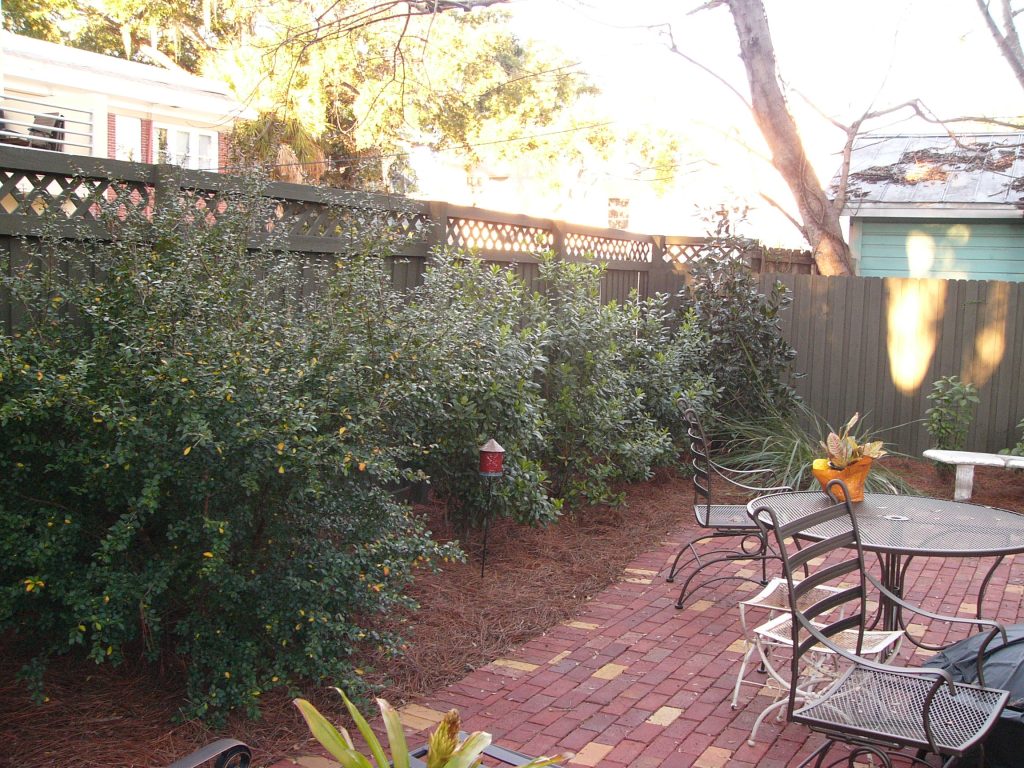Things can get very dry in Florida. If you are trying to grow a garden or a yard of lush, green grass, it will demand that you water regularly and without end. Florida is constantly in a drought with water tables never able to fully recover from modern day demand of expanding population and the misguided pre-occupation on verdant lawns. If you want to end this trap of wasting natural resources and also save money on your water bill, there are a few water saving tips that you should know.
Plant Native Plants
As you plan for new plantings, you should consider native plants that need little or no water besides what nature provides. Native plants have evolved over long periods of time to the soil and moisture regiments in their natural habitat and are adapted to existing conditions. Plant a healthy diversity of native plants and expand into lawn areas reducing or eliminating lawn. Shade from trees can help to reduce transpiration (loss of water) from your landscape and a diversity of groundcovers can be useful to reduce space taken up by lawn. The adage of ‘Right Plant, Right Place’ especially applies with native plants. This rule ensures the right lighting and moisture that allow these plants to thrive on less watering and care. This will reward you when you receive your water bill.
Add Mulch to Your Garden
Organic mulches are a great way to lock the moisture in the soil. If the moisture is locked in, you won’t need to water as often. Not only is this a good thing for the health of the soil, mulch also looks nice and reduces temperature of the root zone. As plants grow and the landscape matures, you will need less mulch when you redress. Environmentally sound mulches you may want to consider are reclaimed mulches, by-product mulches, and the gold standard, Pine Straw. Pine Straw is a fantastic renewable resource. Florimulch, made from the Punk Tree, helps reduce a pest tree in the environment and it is a high-quality mulch. Be sure to avoid Cypress Mulch as it is all too often not produced as a by-product, making its use an unsustainable practice.
Water Early in the Morning or Late at Night
If you water your landscape or lawn in the middle of the day when the sun is shining, it is a waste of your time and is illegal in most communities. The sun will just burn the water off, possibly scorching the grass and plants in the process or evaporating. The best time to water plants is early in the morning before the sun comes up and late in the day after the sun goes down. This will give the water a chance to soak into the soil, keeping it moist for as long as possible. Lawns should only be watered in the early morning so the dew point is not extended, encouraging disease.
Install Drip Irrigation and Water Harvesting
Even native plants need regular watering initially for establishment and vegetable and herb gardens need on-going watering. Installing water methods such as soaker hoses or drip irrigation is a great way to keep the plants watered and the soil moist without wasting too much water. The plants will be watered right at the root, which will keep the water from evaporating quickly. Water harvesting or rain barrels or cisterns are another popular way to save on potable water. These irrigation methods are much more effective than standing in your garden with a hose and can be relatively less expensive in installation as well as beneficial on the water bill.
Keep the Plants Close Together
If you are planting a vegetable garden, you should closely space the plants. Next, box in the garden. This will result in less area that needs to be watered, allow layering of needed organic soil, and the barriers surrounding the garden will hold the water in.
Check the Weather Forecast
If you are using automatic irrigation, current law requires rain sensors to shut your system off if it rains. If you don’t have this, consider having it installed. Winter cold fronts can bring good rains and the summer rain season can produce thunderstorms that can deliver regular or heavy rain. This can be very helpful if you are trying to conserve water. Every rainstorm may not be enough to thoroughly water your landscape, however, there are some days that your plants will be more than adequately moist. There are good options to grow a garden that thrives while conserving water. If you know a few water conversation tips, you should be able to do both.
Wilcox Nursery & Landscape grows or picks the best quality plants for your green needs. Check out our extensive plant selection and let us know if you have any questions.


